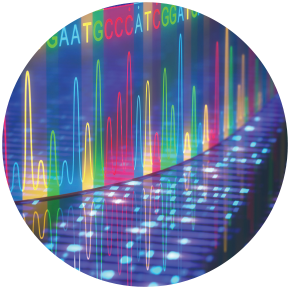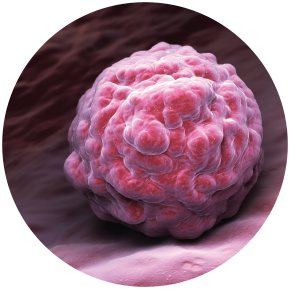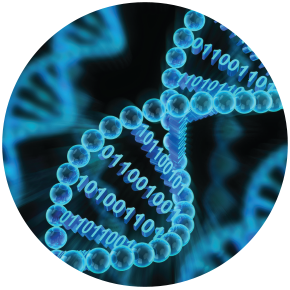

To develop faster and more cost-effective therapies for tuberculosis, researchers need to better understand the biology of Mycobacterium tuberculosis, the bacterium that causes the disease. William R. Jacobs, Jr., Ph.D., has received a five-year, $2.85 million grant from the National Institute of Allergy and Infectious Diseases to systematically delete the coding regions of each of the nearly 4,000 genes of M. tuberculosis and mark each of those mutant variants with an identifying “barcode” DNA sequence. The complete set of barcoded deletion mutants will be distributed to researchers around the world. Studying how the mutations affect the bacterium’s function and survival may give researchers insights into better strategies for preventing or treating TB infections. Dr. Jacobs is the Leo and Julia Forchheimer Chair in Microbiology and Immunology, a Howard Hughes Medical Institute investigator and a professor of genetics and of microbiology & immunology at Einstein.

Embryonic and induced pluripotent stem cells hold great promise for regenerative medicine. Gene expression in stem cells is influenced by epigenetic marks, including methyl groups that are added to or removed from DNA. A class of proteins called TET enzymes aids in removing methyl groups from DNA, thereby activating specific genes in stem cells. Aberrant TET-mediated regulation of gene activity can lead to abnormal stem cell function and development, and to diseases such as cancer. Meelad Dawlaty, Ph.D., has received a five-year, $1.75 million grant from the National Institutes of Health to investigate how TET proteins regulate embryonic stem cells. Findings from these studies will improve basic understanding of stem cell biology and could help identify new targets for treating diseases. Dr. Dawlaty is an assistant professor of genetics and a member of the Ruth L. and David S. Gottesman Institute for Stem Cell and Regenerative Medicine Research at Einstein.

The neurological disorder dystonia causes muscles to contract involuntarily. It is the third most common movement disorder (after Parkinson’s and essential tremor) and affects about 250,000 Americans. Einstein’s Kamran Khodakhah, Ph.D., and colleagues developed a mouse model of DYT1, the most common inherited form of dystonia, that replicates the neurological symptoms of patients. Using this mouse model, they determined that dystonia is caused primarily by dysfunction of the brain’s cerebellum. The National Institute of Neurological Disorders and Stroke has awarded Dr. Khodakhah a five-year, $2.3 million grant to use his mouse model to determine at the cellular and molecular levels how mutations associated with DYT1 cause dystonia. Dr. Khodakhah is professor and chair of the Dominick P. Purpura Department of Neuroscience and the Florence and Irving Rubinstein Chair in Neuroscience.